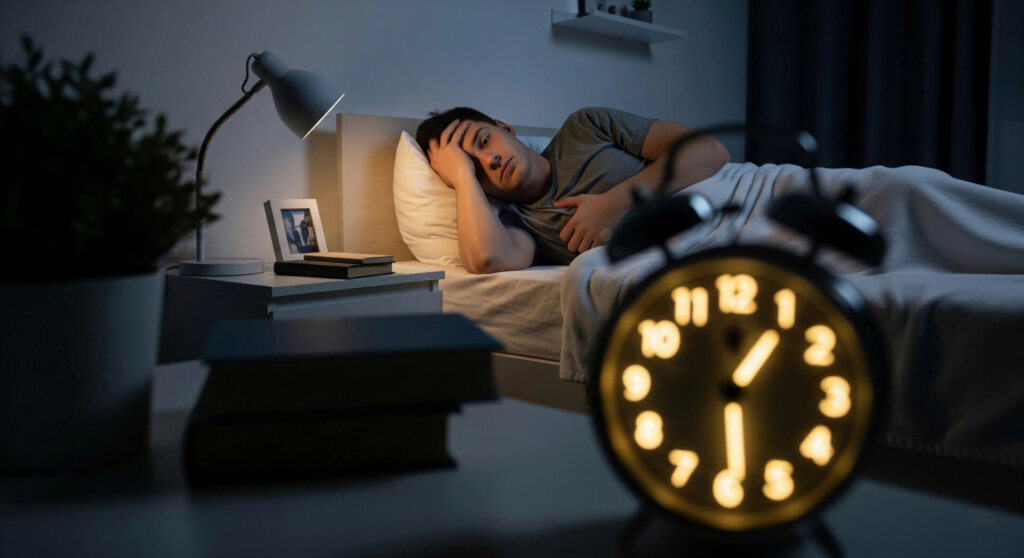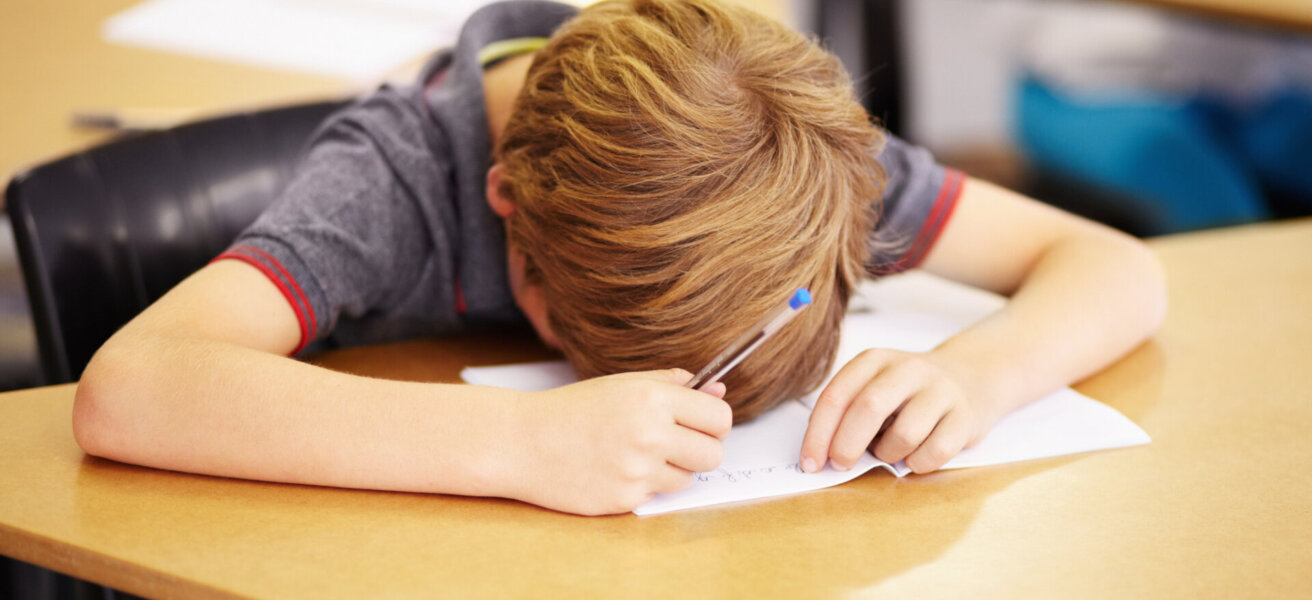It’s 3:17 AM. I look over at the clock, and I could not be more frustrated. I lay back down, close my eyes, and start the breathing exercises my therapist taught me to calm my nervous system. In, out, slow and steady. My brain starts to wander and now I’m reliving that time I made a joke about El Chapo in a presentation to a middle school staff and no one laughed.
Back to the breath. In, out.
A few minutes later, I am wondering whatever happened to the rapper Shaggy. Does he have a family? Mr. Bombastic was a solid song.
Back to the breath.
A few minutes after that, I’m thinking about Fermi’s Paradox. There is no way that we are alone in the universe.
I look over at the clock again. It’s 4:13 AM. Now my frustration boils over into rage. I am at the point of no return. Sleep isn’t happening tonight.
Defeated, I get out of bed and drive to a coffee shop 20 minutes from my house. I am not in the mood to run into anyone I know or have small talk about the weather. It’s 4:52 AM now, and I’m writing this, fueled by caffeine, frustration, and I have no idea how I will make it through the day.
Next I will drive to the gym to burn it off my anxious, frustrated energy. It’s an attempt to reset myself, so I can be a patient father and not drive my work colleagues crazy.
At 6:15 AM, exhausted but slightly less frantic, I drive home. I want to make sure that I am there when my children wake up.
A Disorder of Time, Not Just Attention
When people think about ADHD, they think about focus, hyperactivity, and getting things done. Rarely do they think about the sleep challenges but for many of us, this is the real battle. It’s the anchor that drags down everything else: our attention, our mood, our very ability to function.
Research shows that up to 80% of adults with ADHD experience significant, chronic sleep problems. Our minds race, our bodies refuse to settle, and our internal clocks seem to be set to a completely different time zone than the rest of the 9 to 5 world.
This isn’t a simple case of “difficulty sleeping.” It’s a systemic mismatch. For years, I thought my inability to power down was a personal failing, a lack of discipline. Now, a growing body of research is suggesting that ADHD may not just be a disorder of attention, but a disorder of the circadian rhythm.
Your circadian rhythm is the 24 hour internal cycle that tells your body when to wake up, when to eat, and when to feel sleepy. In many people with ADHD, this rhythm is delayed. This is a condition known as Delayed Sleep Phase Syndrome (DSPS), and it means our brains and bodies are naturally wired to fall asleep and wake up much later than what is considered “normal.”
We aren’t being lazy or defiant when we feel most alert at 11 PM and dead to the world at 7 AM; we are simply operating on our brain’s preferred schedule. In fact, more than 70% of adults with ADHD report taking over an hour to fall asleep, a battle defined by the inability to “shut off the mind.”

The Mental Toll
The mental health toll of sleep deprivation is staggering. It demolishes executive function, turning simple tasks into monumental efforts. It also taxes your emotional regulation, strains your relationships, and evokes a “just get through the day” mentality.
But the more insidious toll is the unpredictability. I can have a perfect week, four, five, even six great nights of sleep in a row. I’ll start to feel human again. And then, for no discernible reason, a night like tonight happens. A random, sleepless night that resets all my progress and throws me back into the fog.
This randomness is what creates the anxiety. Bedtime becomes a nightly gamble. You try to do everything right, the routine, the supplements, reduce blue light, but you still don’t know if you’re going to sleep.
It’s a battle many of us have been fighting since we were young. Studies show that 73% of children with ADHD have moderate to severe sleep problems. Many of us have been tired for a very long time.
Why We Don’t Talk About It
We don’t talk about sleep issues because it’s embarrassing. Sleep is supposed to be the most natural thing to do, and struggling with it can feel like a personal failure. This feeling of failure is what makes the constant, well-intentioned advice so frustrating.
“Have you tried ashwagandha? How about magnesium?”
Yes. My medicine cabinet looks like a GNC.
“Are you off blue light for at least two hours before bed and have a strict bedtime routine?”
I try my best. Most days I do okay, but life with kids and a job is messy.
The advice, while helpful for some, often fails to grasp the scale of the problem. This isn’t just about bad habits. It’s a clinical issue that requires more than chamomile tea. In fact, the connection is so strong that one large-scale study found as many as 60% of adults with ADHD had at least one other diagnosable sleep disorder.
My Advice…I Don’t Have Any
I don’t have any advice to close this piece. I have researched this a lot, read the books and talked to the experts. If you’re not sleeping, you’ve probably tried everything and heard it all anyway.
But if you’re an adult with ADHD lying awake right now, know this: You are not lazy. You are not undisciplined. You are not broken. You are a person with a brain that is wired differently, fighting a silent, nightly battle that most of the world doesn’t see.
This is a real, frustrating, and unfortunately common part of our shared experience. The best we can do is manage it, understand the science behind it, and above all, stop blaming ourselves.
Have empathy for yourself. And on the nights when it works, get some rest.





